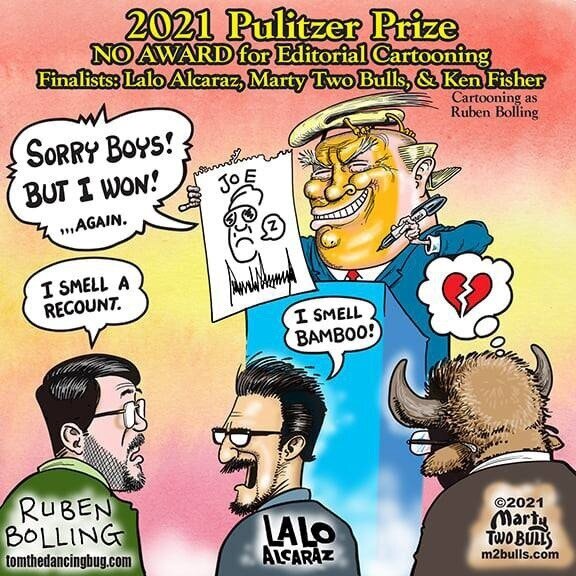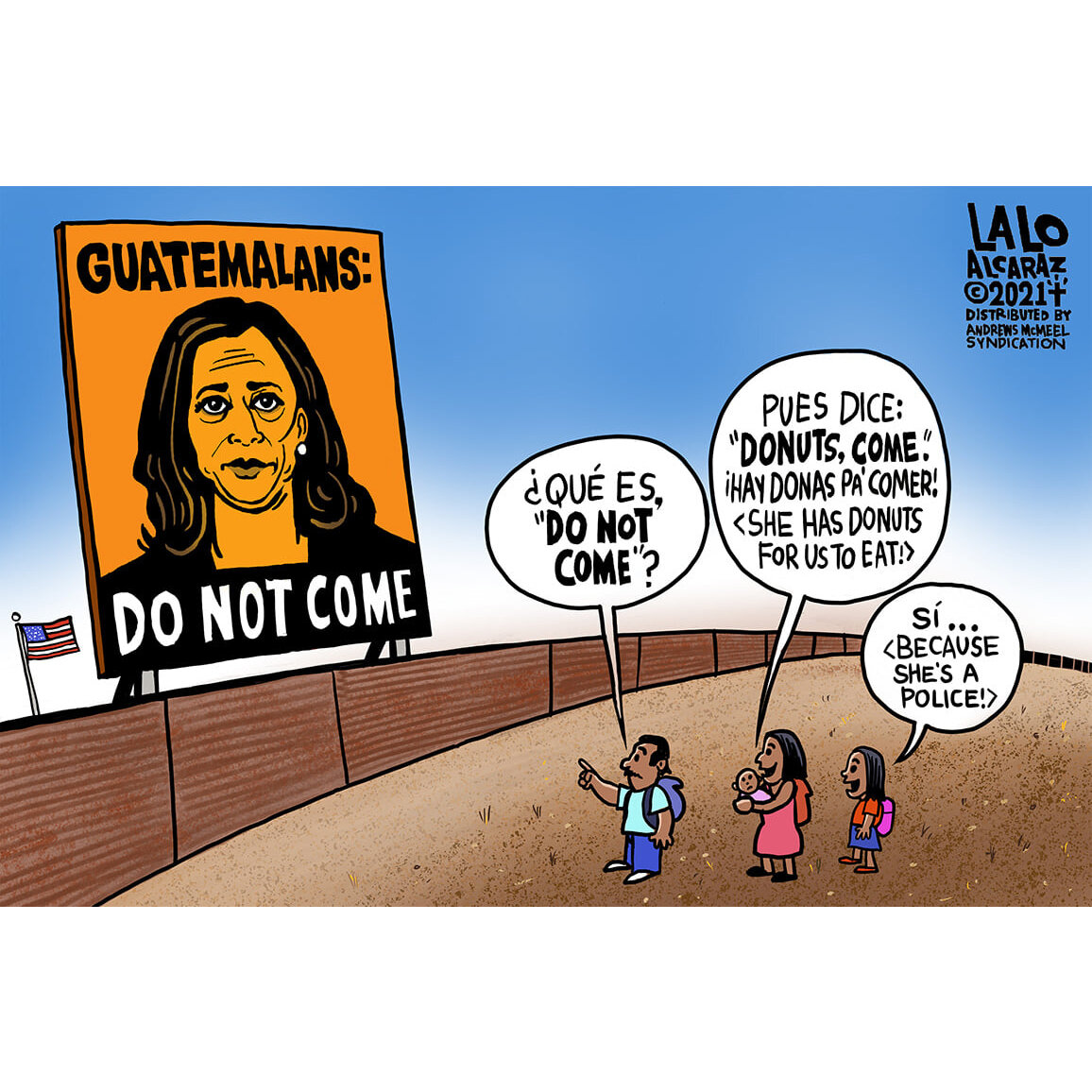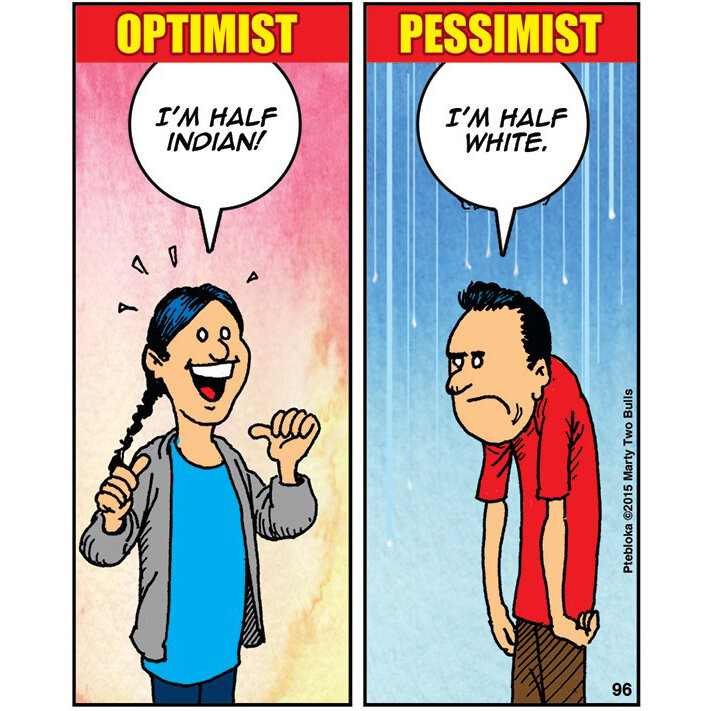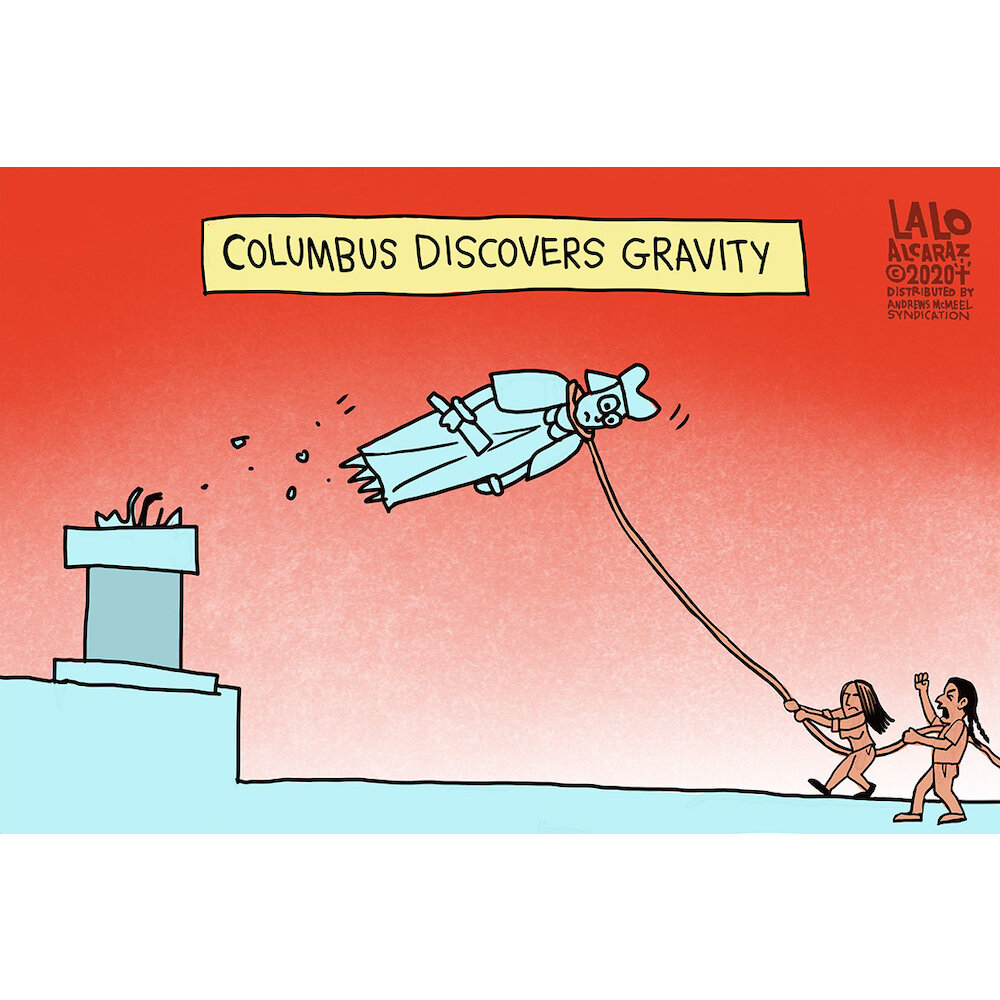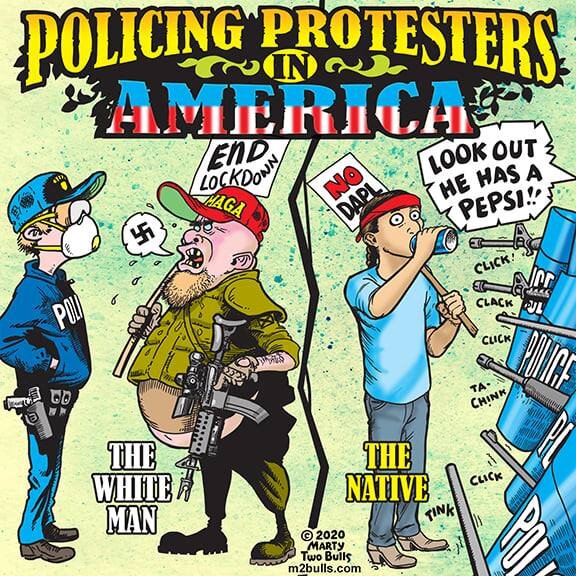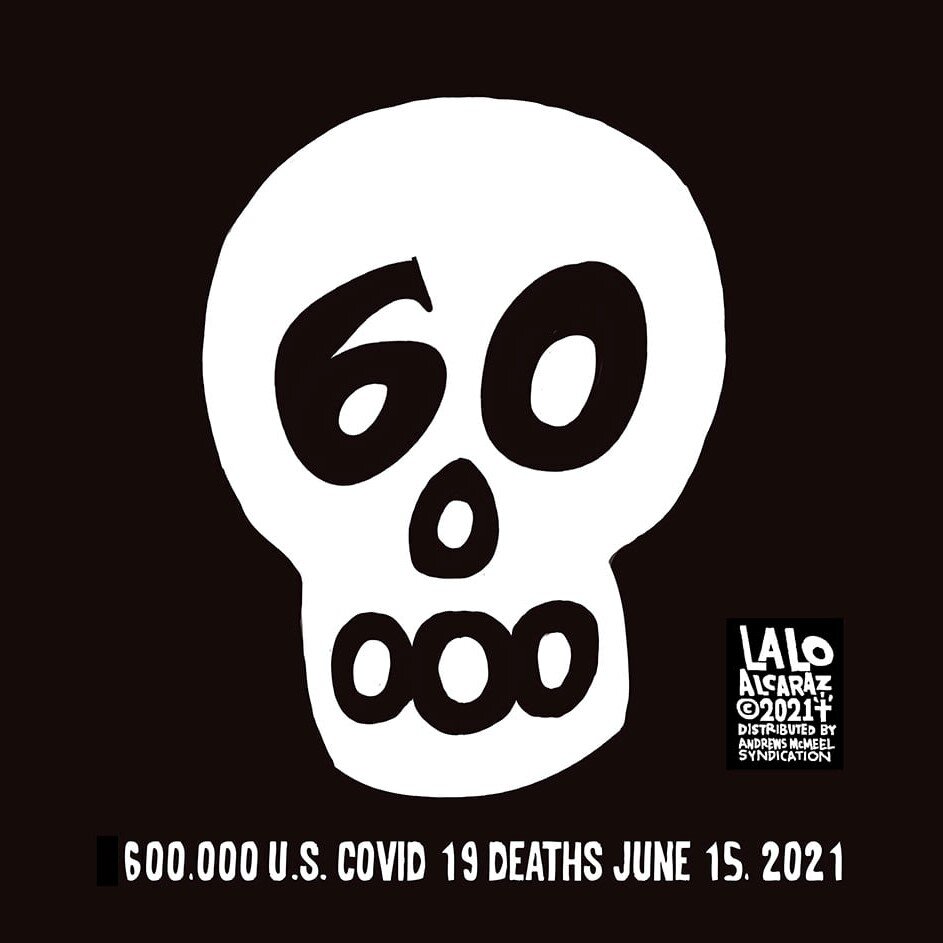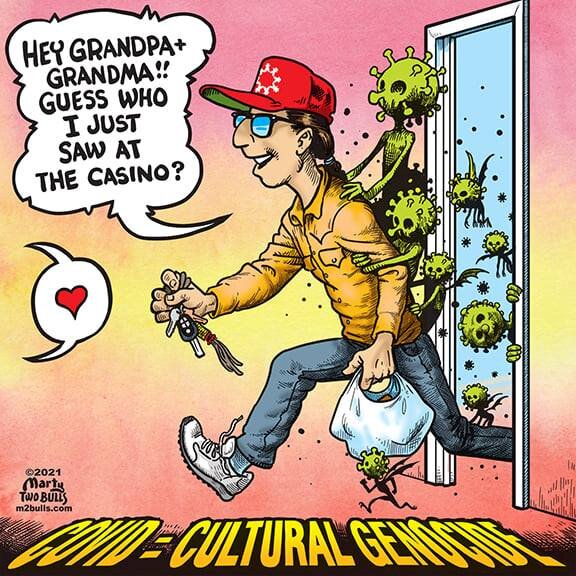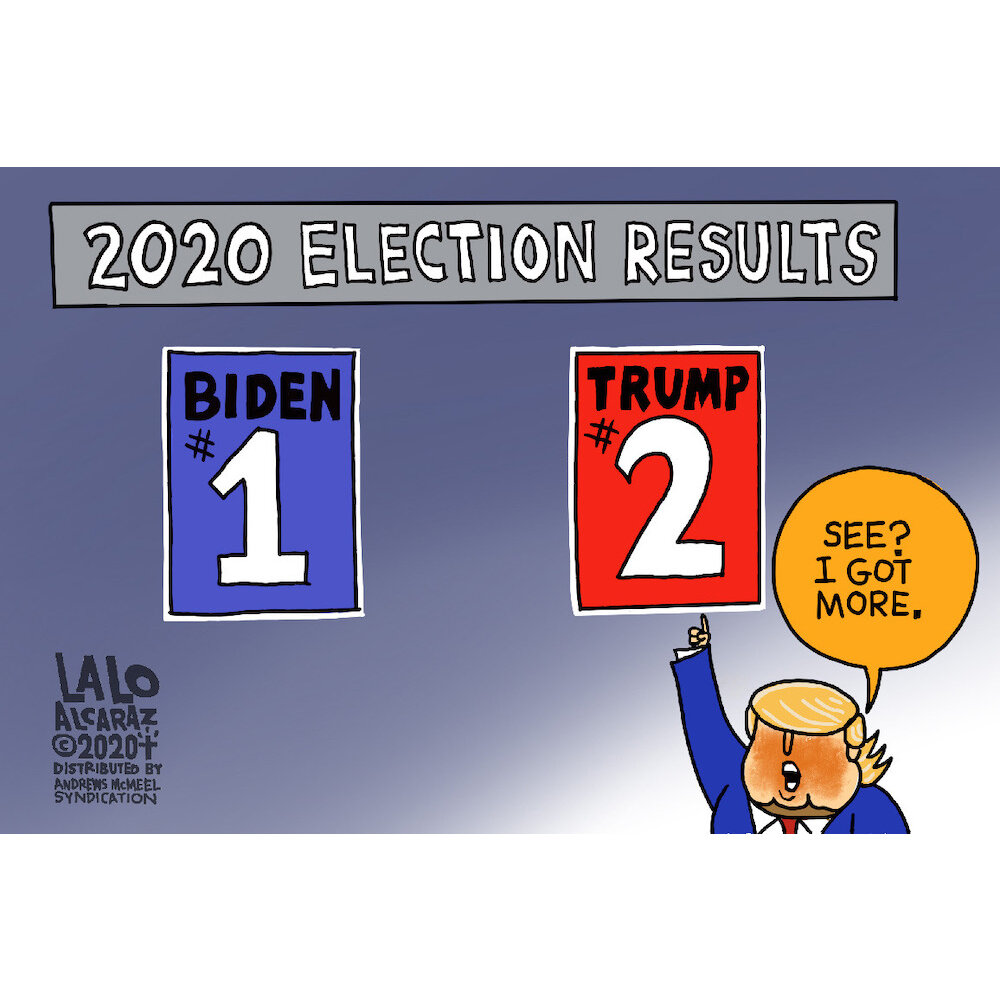GALLERY: Marty Two Bulls, Sr. drew his cartoon about the Pulitzer Prize board not awarding its editorial cartooning prize after emailing fellow finalists Lalo Alcaraz and Ken “Ruben Bolling” Fisher. Two Bulls says, “We thought that a written group response could be taken out of context. In our banter we discussed many things, and the cartoon came out of that.”
Cartoons appear courtesy of Marty Two Bulls, Sr. and Lalo Alcaraz & Andrews McMeel Syndicate.
Several weeks ago, editorial cartoonist Lalo Alcaraz got a text saying, “You was robbed.” Meanwhile, another cartoonist, Marty Two Bulls, Sr., was getting coffee and a third, Ken “Ruben Bolling” Fisher, was at his daughter’s high school graduation when their social media notifications went haywire. Alcaraz, Two Bulls and Fisher learned on June 11 that while they were named finalists for the Pulitzer Prize for editorial cartooning, the Pulitzer Prize Board chose to not name a winner for the first year since 1973.
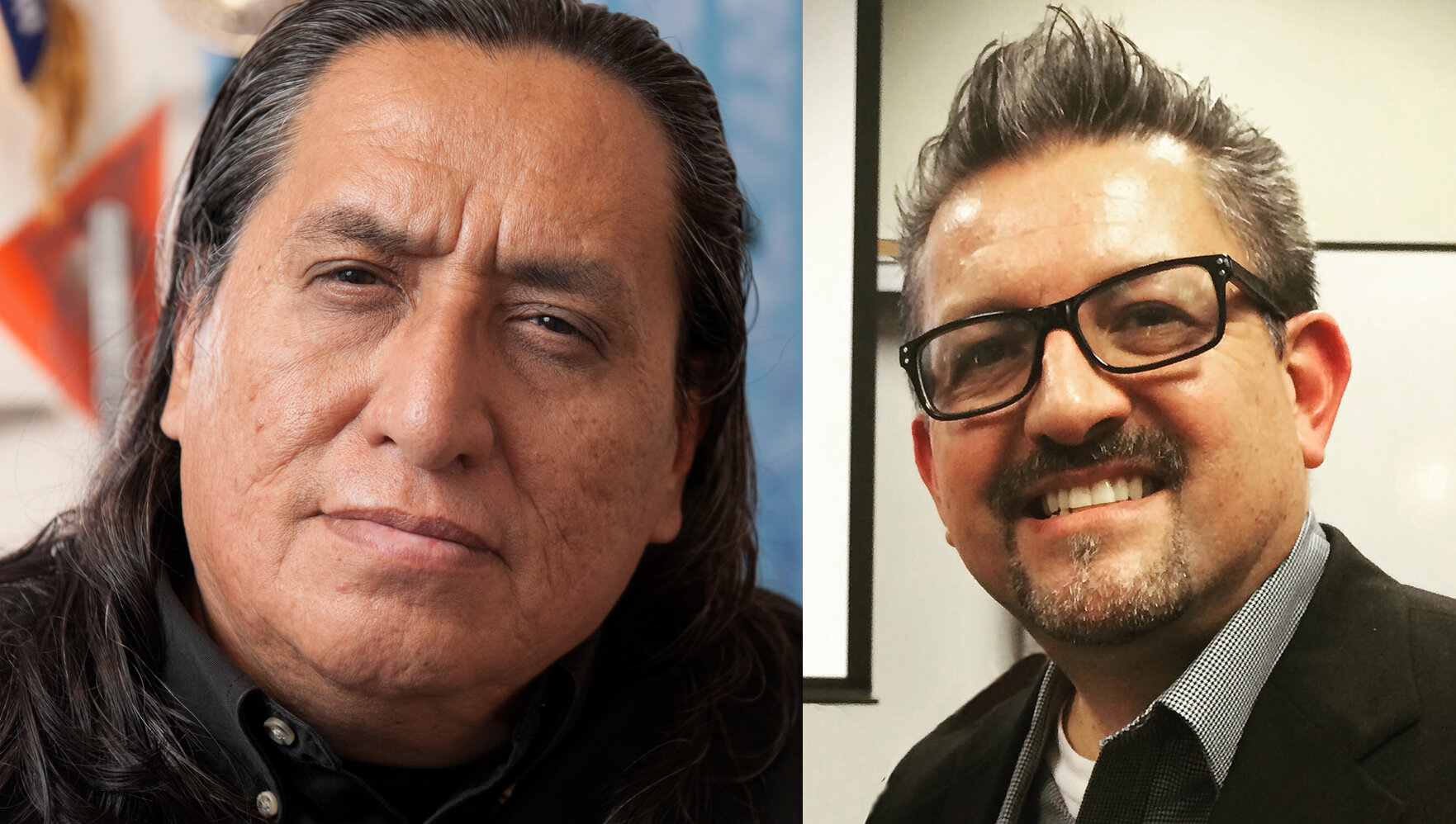
While political cartoonists are no strangers to controversy, this time the cartoonists themselves became the center of the controversy. They said they felt outraged and asked why the Pulitzer board withheld one of the most prestigious editorial cartooning prizes, particularly after a year full of material, including the pandemic and a presidential election. Cartoonists across the country discussed the optics of the Pulitzer board not choosing a winner between Alcaraz, who is Chicano, Two Bulls, who is Oglala Lakota, and Fisher, who is Jewish. The Association of American Editorial Cartoonists, Herb Block Foundation and three major cartoon syndicates released statements criticizing what the AAEC called an “extremely traditional and narrow-minded” board.
Interim Pulitzer Prizes administrator Bud Kliment responded in a statement, “Despite considerable discussion by the board, none of the three finalists achieved a majority vote in the Editorial Cartooning category.” The Pulitzer board has not given awards in other journalism categories, including Breaking News Reporting in 2011, Editorial Writing in 2012 and Feature Writing in 2014.
In the wake of their Pulitzer snub, Marty Two Bulls and Lalo Alcaraz paused their breakneck work schedules to talk to NBCU Academy about the Pulitzer Prize Board’s controversial decision, their careers as editorial cartoonists of color and their advice for young artists. The transcript has been edited for length and clarity.
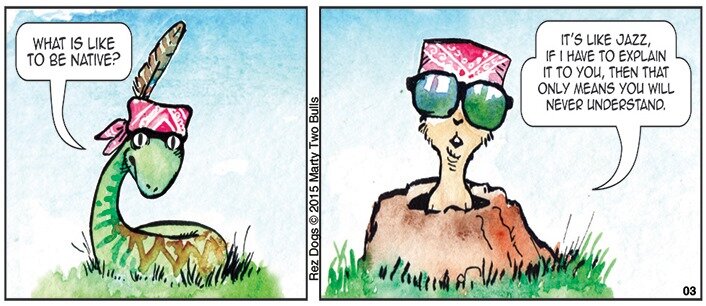
NBCU ACADEMY: What was your reaction to being nominated for a Pulitzer, but to not get the prize?
Marty Two Bulls, Sr.: It’s a great honor. I really have no control of the award of the prize. Basically, it’s their contest; they could do whatever they want. You need these awards because it draws attention. Whether I win or not, my name is still out there. My work is exposed to a larger audience, and I’m really grateful.
Lalo Alcaraz: It gives me a little bit of self-doubt. Like, what happened? What did I do wrong? And all the guys that weren’t finalists this year, they’re wondering also: Should I apply to this? Is it a lottery or is it a legit thing? We’re all second-guessing ourselves. It’s a little strange.
What’s the field of editorial cartooning like for people of color? Lalo, in 2019 you tweeted: “A Pulitzer Prize-winning editorial cartoonist told me, ‘I worry that the Hispanic immigrant parents are not teaching their kids English.’ And I’m like, ‘I’m talking to you in English right now, motherf—er.’” Is that typical?
Alcaraz: It’s typical of Americans. That happened 10 years ago, but I still remember it like it just happened. It was sad — this guy’s a big-time, East Coast newspaper staff cartoonist with awards. It was probably the only time I talked to the guy in my life. I was like, ‘Holy moly, that’s not what I expected to hear from a liberal cartoonist.’ That guy was looking at me in the face, worried about brown people assimilating, and my English is as good as his English.
Do non-Latino audiences react differently to your work than Latino audiences?
Alcaraz: I’ve always had that group of Anglos that hate me for my name, or my politics or my ethnic background. I’ve also had people from the Mexican American community who hate me for just being too loud and saying too much, or some don’t think I go far enough. It’s just people want me to shut up. They don’t know when it comes to that, reverse psychology works on me every time. You don’t want me to say it, I will say it 10 times louder.
Marty, is there a different reaction to your work from your Native audiences versus non-Native audiences?
Two Bulls: I’ve been drawing these cartoons for Native Americans all my life. And everyone else that likes my work — that’s just a bonus. There are some people that have similar humor to us, what they call Native humor. It’s kind of rough and it’s kind of hard. People who like ironic scenes, who are laughing at hypocrisy and those kinds of fans appreciate the work, because I’m not trying to be like Charlie Brown or something and hit everybody. I just want to keep to my niche, keep to my audience because that’s what keeps me doing this. I’ve been [publishing cartoons] every Friday since 2001. It’s been all the time, 52 times a year — it’s a commitment. I don’t make much money off it, but it’s a commitment I do because I like to do it. And the day I stop liking it is the day it ends.
How do you find humor and ideas for cartoons in response to the news, which can be pretty depressing?
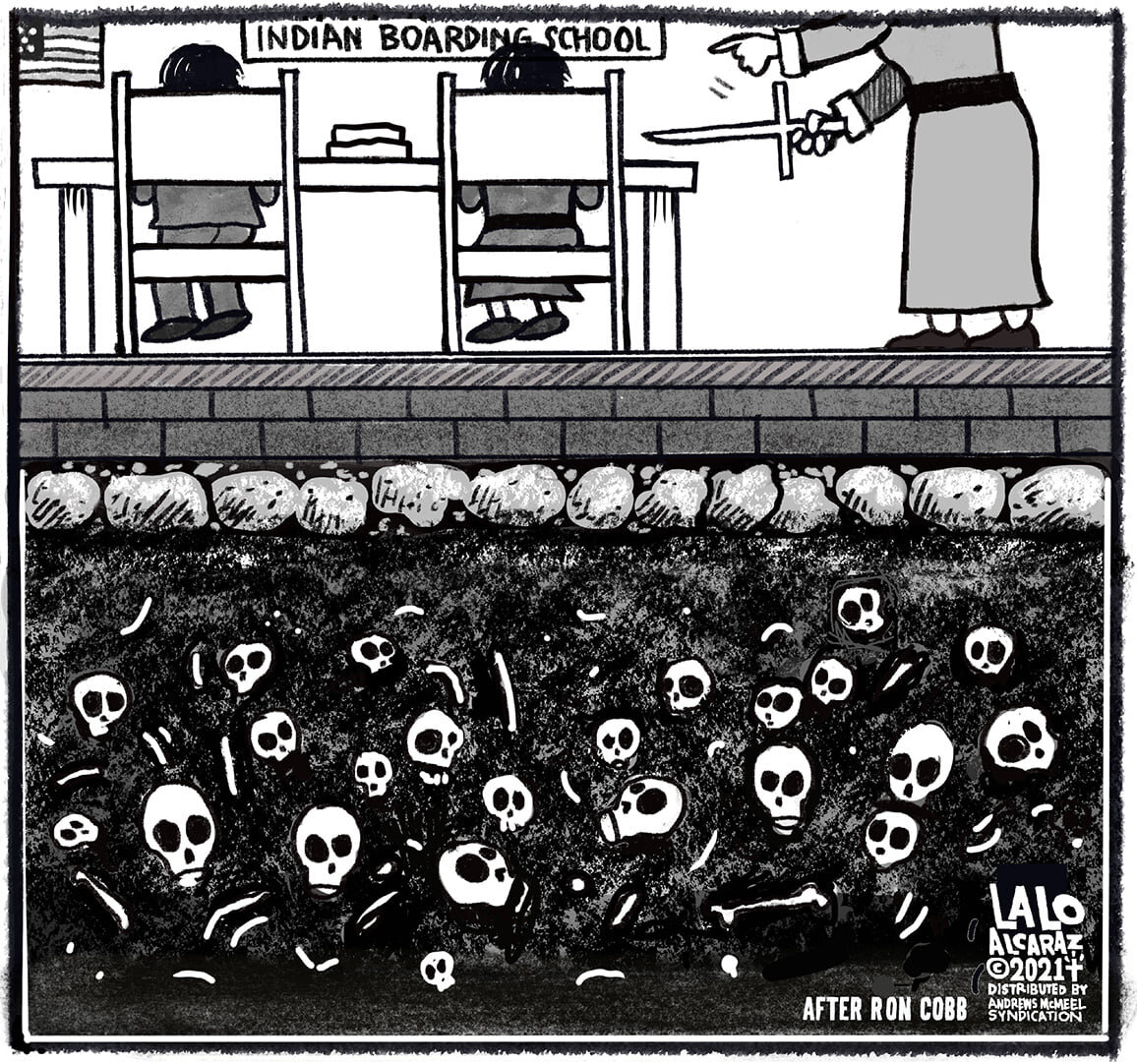
Two Bulls: You don’t always have to be funny. There’s some real serious stuff I’ve done, that evokes emotion. What you’re trying to do with an editorial cartoon is get people to think about it. I would prefer people to debate amongst themselves or even with themselves about their political views. I use humor to push people that way, but I’ll also use a grave image, whatever I think they could understand.
Alcaraz: Sometimes you blink and you’re three news cycles down, and that idea you had for a cartoon is almost stale. You got to pick and choose the right one. I’m at the point where I don’t really need to sketch stuff out anymore. I just see it, throw it down, work it out on as I draw it. It just comes with practice. A news story that is not a quick turnover item is all the Indian boarding schools where they’re finding unmarked graves all over Canada. We know we have them here in the U.S. and I think it’s an issue that needs to be addressed, like any other racial reckoning.
Would you recommend to college students that they become editorial cartoonists?
Two Bulls: It’s a narrow field. I had seven [Native American newspapers that publish my work] and now I’m down to two. I don’t think there’s too many people that can do it, because it requires a lot of reading and a lot of interest in the news. I prefer to work with students that are really committed to this, because you’re not going to get rich; this is a lifelong commitment. It takes work to get good. And if you work and work and work, you’ll look up some day and will say, “Hey, I’m doing okay.”
Alcaraz: Now that we have so many screens and things to look at, there’s tons of opportunities for that. If it’s in your blood to be a political cartoonist, you’re condemned to do a daily comic strip, every day, forever. We’re gluttons for punishment. If people are like that, they’re going to figure out a way to do our “negative art,” as a cartoonist friend of mine calls what we do. I told my son about how I was a broke ass cartoonist for the longest time, but now I’m not. It can happen to you!
For more information, visit Marty Two Bulls’ website and Lalo Alcaraz’s website.

